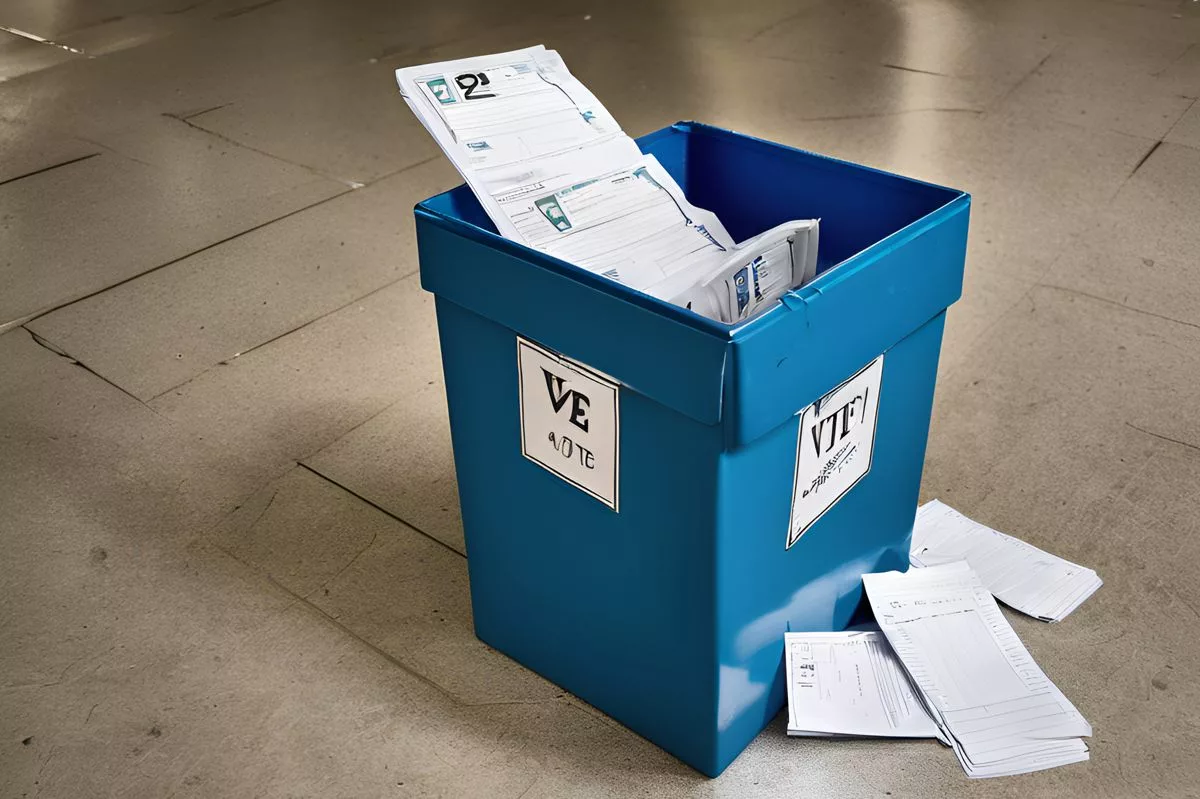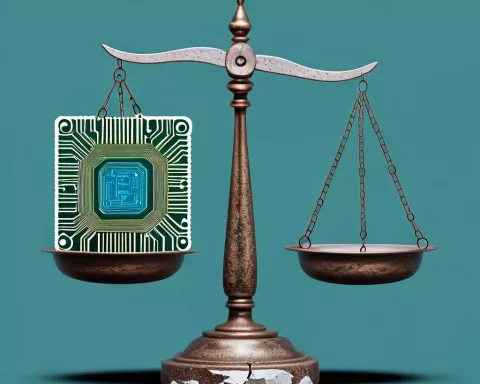The submission of the roster of proposed National Assembly members from Chief Justice Raymond Zondo symbolized a significant milestone in South Africa’s dynamic democratic voyage, highlighting the shift of legislative power and showcasing the unwavering devotion of its guardians.
A Major Democratic Milestone
The submission of the roster of proposed National Assembly members from Chief Justice Raymond Zondo symbolized a significant milestone in South Africa’s dynamic democratic voyage, highlighting the shift of legislative power and showcasing the unwavering devotion of its guardians.
In a time defined by profound political metamorphosis, the Republic of South Africa stands as an emblem of democratic might and the flexibility of its institutions. One morning, imbued with deep dignity and earnest appreciation, the Republic of South Africa’s Secretary to Parliament, Mr Xolile George, took custody of the roster of proposed National Assembly members from the Chief Justice, Raymond Zondo.
A Major Democratic Milestone
This event transcended a mere exchange of documents. It symbolised a significant milestone in South Africa’s dynamic democratic voyage, a nuanced and profound constitutional process highlighting the shift of legislative power. It showcased the complex mosaic of our democratic landscape and the unwavering devotion of its guardians, including the Chief Justice, the Chairperson of the National Council of Provinces, Mr Amos Masondo, and the erstwhile Acting Speaker of the National Assembly, Mr Lechesa Tsenoli, among others.
Chief Justice Zondo’s steadfast commitment to justice and his careful administration of this constitutional process served as a cornerstone of strength during this transition. His office’s accuracy and honesty in handling this event and facilitating a seamless, punctual transition deserve our deepest gratitude. Such dedication underlines the continued reverence for democratic standards and principles in South Africa.
Upholding Democratic Norms
Successfully executing a free and fair election is no small feat. It demands robust systems, a profound sense of obligation, and a pledge to openness. The Independent Electoral Commission (IEC), under the stewardship of Mr Mosotho Moepya, has accomplished this task with remarkable prowess. Their unflagging efforts enabled millions of South Africans to exercise their democratic rights, bolstering the integrity of our electoral process and fortifying the structure of our democracy.
The lately held elections signify more than a political competition. They embody the tenacious spirit of over 16 million South Africans who, despite adverse weather conditions, exercised their right to vote, moulding the destiny of our nation. This momentous election, marking the 30th anniversary of our constitutional democracy, showcases the vibrancy and positive vitality of our democratic principles.
Gender Equality and Youth Representation
In terms of gender parity, the National Assembly has displayed a robust commitment to promoting inclusive governance. Despite a slight drop in female representation from 45% in 2019 to roughly 43.5%, the National Assembly remains an international trailblazer for women’s political representation. This commitment is echoed in the Assembly’s consistent ranking in the top 10 of the Inter-Parliamentary Union (IPU) for its generous representation of women.
There is a significant change in the demographic makeup of the National Assembly, with about 50% of its members falling within the 20 to 50-year age bracket. This youthful representation aligns the Assembly with the population’s demographics, offering new viewpoints and creative methods for tackling societal challenges and ambitions.
Looking Forward
As we look forward, the administrative process following this handover entails careful preparations for the inaugural sittings of the National Assembly and the National Council of Provinces (NCOP). This encompasses a thorough onboarding process, featuring orientation sessions to acquaint new members with parliamentary procedures and protocols, and logistical plans to accommodate members commuting from far-flung regions.
In anticipation of this significant transition, Parliament has put in place robust mechanisms to ensure the smooth functioning of the first sittings. This includes setting up a secure voting infrastructure, arranging for the election of the new Presiding Officers and the President of the Republic, and safeguarding the security, transparency, and integrity of these processes.
The newly elected Members of Parliament will be immersed in a structured orientation programme. This comprehensive approach, which involves training on effective communication, law-making, and constituency management, aims to furnish them with the necessary skills for their roles, ensuring that they are ready to serve productively and competently from the outset.
As the preparations for the first session at the Cape Town International Convention Centre (CTICC) are underway, the Secretary to Parliament, Mr Xolile George, guarantees South Africans of their unwavering determination to uphold democratic values and serve the nation diligently. As we progress from this crucial juncture, we are reminded of our democratic institutions’ strength and the lively democratic spirit of the South African populace. Together, we continue to navigate a course towards a prosperous and equitable future.
1. What was symbolized by the submission of the roster of proposed National Assembly members from Chief Justice Raymond Zondo?
The submission of the roster of proposed National Assembly members from Chief Justice Raymond Zondo symbolized a significant milestone in South Africa’s dynamic democratic voyage, highlighting the shift of legislative power and showcasing the unwavering devotion of its guardians.
2. Who were the guardians of the democratic process in South Africa during this transition?
The guardians of the democratic process in South Africa during this transition included the Chief Justice, the Chairperson of the National Council of Provinces, Mr Amos Masondo, and the erstwhile Acting Speaker of the National Assembly, Mr Lechesa Tsenoli, among others.
3. Who was responsible for executing the recent free and fair election in South Africa?
The Independent Electoral Commission (IEC), under the stewardship of Mr Mosotho Moepya, was responsible for executing the recent free and fair election in South Africa.
4. How has the National Assembly shown a commitment to promoting inclusive governance in terms of gender parity?
The National Assembly has shown a commitment to promoting inclusive governance in terms of gender parity by ranking in the top 10 of the Inter-Parliamentary Union (IPU) for its generous representation of women, despite a slight drop in female representation from 45% in 2019 to roughly 43.5%.
5. What is the demographic makeup of the new National Assembly in terms of age?
About 50% of the new National Assembly’s members fall within the 20 to 50-year age bracket, demonstrating a significant change in the demographic makeup of the Assembly.
6. What preparations are being made for the inaugural sittings of the National Assembly and the National Council of Provinces (NCOP)?
Preparations for the inaugural sittings of the National Assembly and the National Council of Provinces (NCOP) include a thorough onboarding process featuring orientation sessions to acquaint new members with parliamentary procedures and protocols, logistical plans to accommodate members commuting from far-flung regions, and setting up a secure voting infrastructure to ensure the safety, transparency, and integrity of these processes. Additionally, newly elected Members of Parliament will undergo a structured orientation programme to furnish them with the necessary skills for their roles.












